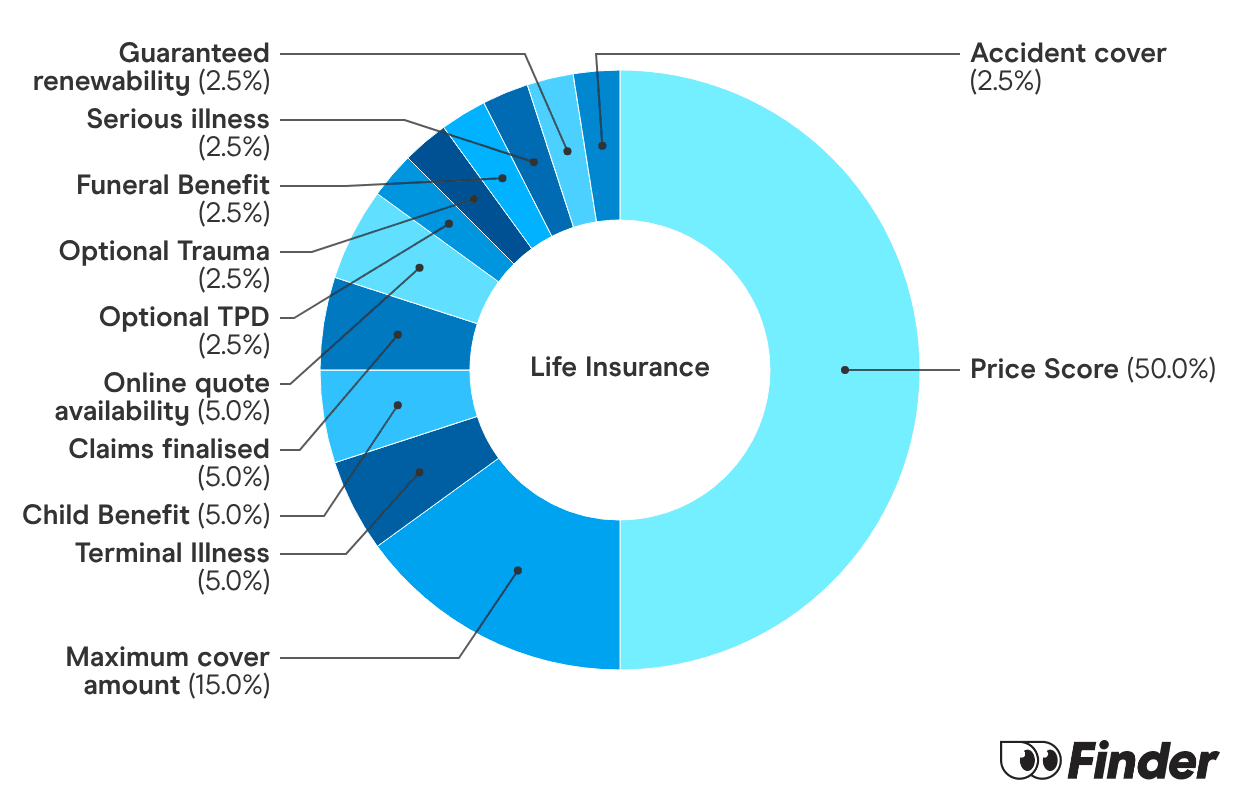Life insurance: 5 essential questions answered by an expert

A leading expert answers 5 key questions about life insurance.
 Sponsored by Zurich. Ezicover Life Insurance policies are complimentary for the first 30 days. In the first year of your policy, you'll only pay 11 months' premium. Terms and conditions apply.
Sponsored by Zurich. Ezicover Life Insurance policies are complimentary for the first 30 days. In the first year of your policy, you'll only pay 11 months' premium. Terms and conditions apply.

Life insurance can be a complex topic. To answer some of the big questions around it, we spoke to Adam Crabbe, risk strategy specialist at Zurich.
As a leading expert on life insurance, Crabbe has shared his insights on five of the most frequent questions that Australians have on the topic. In this essential guide, you'll discover some of the key answers that you need to know before signing up for a life insurance policy.
Question 1: Do I really need life insurance?
Having life insurance is intended to ease the burden when there's an unexpected death in the family. Crabbe noted that the proceeds can be used to cover a range of expenses, including:
- Managing or repaying debts
- Future education expenses
- Funeral expenses
- Covering costs from lost income
"Some types of cover also let you receive benefits if you're permanently disabled or become terminally ill," Crabbe said.
He pointed to Ezicover Life Insurance as an example, which can provide you with a lump sum payment if you're diagnosed with a terminal illness.
However, it's always important to investigate a policy thoroughly to see if it's right for your needs.
"Before you sign up for any life insurance policy, make sure that you read the PDS and the TMD to see if it suits your needs," Crabbe said.

Question 2: What sort of features should a life insurance policy include?
Life insurance is probably best known for providing a lump-sum payment when the insured person passes away.
However, Crabbe noted that not all policies are created equal.
"Some death cover products may only pay for certain events," said Crabbe. "For example, an accident-only policy would exclude illnesses."
Crabbe added that death exclusions can range from a single, time-limited exclusion to various excluded events such as acts of war, pandemic illness, pre-existing health conditions, self-inflicted injuries and even certain high-risk occupations.
Crabbe also suggested that you investigate the death cover sum insured if you become terminally ill.
Terminal illness coverage can differ from policy to policy, including the length of the accepted terminal illness duration and the maximum amount that can be advanced.
"Somebody with only a short time left to live may wish to approach their life insurer and be granted early access to the life insurance benefit," said Crabbe.
"This type of access can give you the ability to improve your lifestyle in the last few months or years. It can also be a way to provide an early bequest to children or grandchildren."

Question 3: How does the insurance company decide the premium for my policy?
"When you're talking cost, first you need to understand the type of life insurance you're opting for," said Crabbe. "There are different factors that play in, depending on whether it's an individual or an employer-sponsored policy."
For an individual policy, some of the factors considered include:
- Age
- Assigned gender at birth
- Occupation
- Smoking/vaping status
- High-risk activities – contact sports, rock climbing, motor racing, hang gliding and base jumping
"All of these help to appropriately align the price of that person's premium based on the overall risk of others in the 'risk pool'," said Crabbe.
By contrast, an employer-sponsored policy typically has a pricing model that operates on a cost-per-unit basis.
"The coverage is the same irrespective of age, gender or lifestyle, but the sum you're insured for could change – either increasing or decreasing – over time," Crabbe added.
Question 4: Am I still eligible for coverage if I have a pre-existing health condition?
Coverage with pre-existing conditions depends on a few different factors.
Crabbe noted that for individual coverage, the underwriter will make a determination based on a number of factors – the condition itself, its severity and the risk it would introduce into the wider "risk pool".
This can lead to a few different outcomes.
"Sometimes it's no issue, and you'll see the risk accepted at a standard rate," added Crabbe. "On other occasions, there will be a premium charged or additional exclusions will be applied to the policy. In certain circumstances, the underwriter will need to decline the application."
Other forms of cover can differ. Some products may have a built-in pre-existing condition exclusion for a limited period while others may have exclusions that apply throughout the life of the policy.

Question 5: Can I buy life insurance only for myself or for other people too?
There are a number of different circumstances where life insurance can be purchased for another person. Crabbe highlights 2 in particular – a parent purchasing life insurance for their child and an employer purchasing life insurance for an employee.
Crabbe noted that there can also be financial benefits to taking out more than 1 policy at a time.
For example, when you apply for 2 policies at the same time with Ezicover Life Insurance and they're both accepted, you receive a 10% discount on the second policy.
Of course, if you're taking out policies for other people – or having 1 taken out for you – clearly discuss expectations and desired outcomes ahead of time.
"It's important to note that the policy owner retains overall control of the policy," explained Crabbe.
"They're able to make changes, such as decreasing the sum insured or even cancelling the policy altogether."
Learn more about Zurich Ezicover Life Insurance
Compare other products
We currently don't have that product, but here are others to consider:
How we picked theseFinder Score - Life Insurance
Life Insurance is a little complicated and a lot overwhelming. That's why we made the Finder Score, to make it easier to compare Life Insurance products against each other. Our experts analysed over 30 products and gave each one a score out of 10.
But a higher score doesn't always mean a product is better for you. Your situation is unique, so your policy choice will be too. Don't think of Finder Score as the final word, but as a good place to start your life insurance comparison.

